|
|
|||||
South Africa’s fence-sitting grows less comfortable, Lesotho goes on murder lockdown, and a look at what is – and what should be – on the agenda at this weekend’s G7 Summit. |
|||||
|
|
|||||
Top newsActions speak louder: The G7’s Summit agenda strikes many of the right notes — but it remains to be seen whether that results in meaningful action or empty gestures. Issues on the agenda include economic resilience, climate, food, health, and development. The G7 could help provide economic resilience to vulnerable countries by delivering on the pledge to rechannel $100 billion in special drawing rights — a target far from being met — and support channelling SDRs through multilateral development banks like the African Development Bank and the World Bank. The G7 has considerable leverage: its members collectively hold a disproportionate share of the World Bank’s voting shares.  Seeing red: This week, a group of Catholic bishops from 23 African countries urged G7 leaders to include debt cancellation as part of their support for the economic recovery of African countries. Twenty-two African countries are bankrupt or at high risk of debt distress, and many are spending an increasing portion of their budgets on debt repayments. There isn’t a lot the G7 can do without China and private creditors. But rather than pointing fingers at someone else, we’ve got a few proactive things for the G7 to consider: 1) commit to a meaningful dialogue with China, 2) offer bilateral haircuts, and 3) take steps to force private creditors to the table. Meanwhile, the IMF approved a $3 billion bailout for Ghana, after Ghana’s public debt ballooned to almost equal its annual economic output. The approval is an all-too-rare victory for the G20’s Common Framework, whose effectiveness in dealing with the debt crisis is (justifiably) being questioned (including by us).  RISE-ing up: In an effort to make global energy supply chains less reliant on China, the G7 announced a new initiative to enable low- and middle-income countries to play a greater role in clean energy supply chains. The Partnership for Resilient and Inclusive Supply-chain Enhancement (RISE) could help unlock much-needed investments in Africa’s clean energy infrastructure. China currently dominates every segment of the supply chain for the solar photovoltaic cells used in producing solar energy, as well as in the critical minerals used in electric vehicle batteries. Meanwhile, Zimbabwe is wrestling back control of its carbon credit market: It granted the Treasury a 50% share of revenues, whilst limiting foreign investors to a 30% share. Planning for a rainy day: Amongst the summit’s likely (and laudable) announcements: G7 leaders plan to establish a new programme to distribute vaccines to low- and middle-income countries. The programme aims to address the financial and capacity constraints those countries faced during the COVID pandemic through a pool of rainy-day funds for vaccine production and purchases, investment in adequate storage equipment, and pandemic preparedness. It also forms a part of ongoing G7, WHO, and World Bank efforts to strengthen the global health architecture through a new financing framework. On that theme, the African Union signed a memorandum of understanding with GAVI this week to support immunisation and health systems strengthening. In what is hopefully a sign of what’s to come from health systems strengthening efforts, Benin and Mali joined four other African countries in eliminating trachoma as a public health problem. Russian roulette: South Africans were dealt a new shock as the country’s currency fell to a record low against the US dollar last Friday. The decline was driven, at least in part, by the US ambassador to South Africa’s accusation that South Africa had provided Russia with arms. A diplomatic crisis ensued, with ruling ANC party members rushing to condemn the ambassador’s remarks and (once again) asserting the country’s neutrality on Russia’s war in Ukraine. Recognising that it’s probably not a great idea to upset one of South Africa’s largest trading partners, President Cyril Ramaphosa promised to speak to Ukrainian President Volodymyr Zelenskyy and launch a formal inquiry into the ambassador’s allegation. Also on Ramaphosa’s redemption agenda is being part of a delegation of African heads of state to engage both Russia and Ukraine in peace talks. Murder mayhem: The Kingdom of Lesotho has imposed a national curfew between 10 p.m. and 4 a.m. following the killing of Ralikonelo Joki, an investigative journalist. Joki’s investigations into the corrupt practices of the country’s politicians had caused controversy and led to death threats. His murder comes amidst increasing concern over the country’s high rates of murder and illegal firearm possession. Lesotho has one of the world’s highest homicide rates. The country’s opposition party criticised the curfew, stating that it will do little to curb crime and only slow down the country’s economic recovery in the wake of COVID-19 restrictions. From the ONE Team
The numbers
 |
|||||
|
|
|||||
Quote of the week
|
|||||
|
|
|||||
What you should read, watch, and listen to:
|
|||||
|
|
|||||
A look ahead19-21 May: G7 Summit of Leaders in Hiroshima, Japan. 19-26 May: African Union 4th Specialized Technical Committee on Youth, Culture and Sports in Addis Ababa, Ethiopia. 21-30 May: World Health Assembly in Geneva, Switzerland. 22-26 May: Annual Meetings of the African Development Bank Group in Sharm El Sheikh, Egypt. 25 May: Africa Day and the African Union’s 60th Anniversary |
|||||
|
|
|||||
The ONE Campaign’s data.one.org provides cutting edge data and analysis on the economic, political, and social changes impacting Africa. Check it out HERE. |
|||||
|
|
|||||
|
|
|||||
Did you like today's email?Loved it Mehhh Hated it |
|||||
|
|
|||||
Did you like today's email?Loved it Mehhh Hated it |
|||||
|
|
|||||
Wie hat dir dieser Newsletter gefallen?Richtig gut! Ging so… Überhaupt nicht. |
|||||
|
|
|||||
|
|||||
|
|||||
|
|||||
|
This email was sent by ONE.ORG to test@example.com. You can unsubscribe at any time. ONE Campaign |
